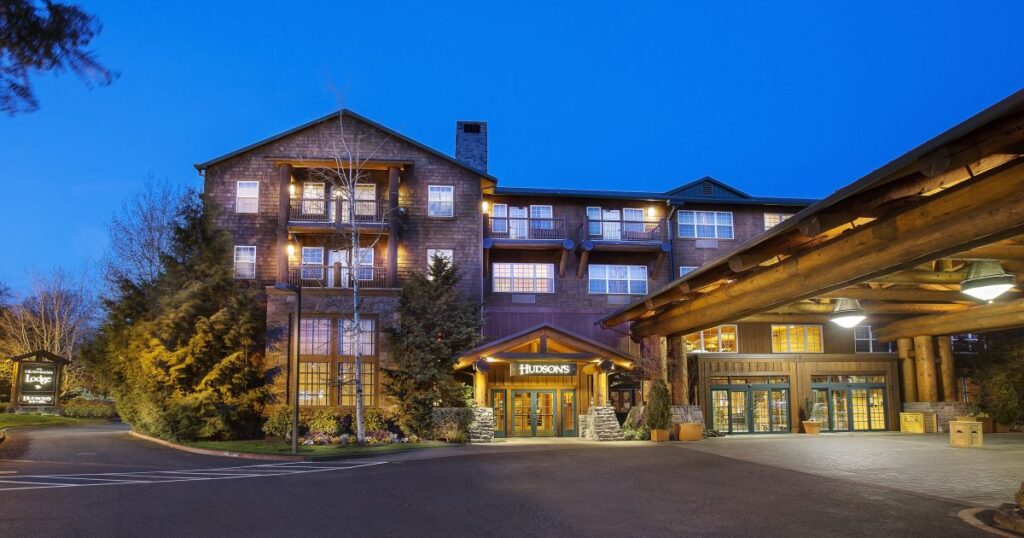Before the COVID-19 pandemic, it was easy to sit down in all your favorite restaurants, hang out at the bar or check into hotel rooms with amazing customer service. Due to increased daily exposure to the virus, and hospitality businesses shutting down across the nation, employees everywhere have faced negative effects on their health and wellbeing while the labor market suffers at the same time.

Professor Chun-Chu “Bamboo” Chen teaches hospitality and business management at WSU Vancouver. Through a research mini-grant awarded by the university’s Office of Research and Graduate Education, Chen was allowed to study the pandemic’s psychological toll on hospitality workers.
“Overall, hospitality, tourism, leisure and sports as a whole has been hit the hardest. I think that’s what really motivated me to know what’s going on. I understand that this is a health crisis that we need to handle, but my perspective is, we need to know at a minimum of how much we have sacrificed by closing or putting up restrictions. I’m not against the restrictions, but we have to know that those restrictions may help curtail the outbreak, but there’s a cost. So I really wanted to know that cost, which is pretty high,” Chen said.
Through his research, Chen found three key stressors that have significantly impacted tourism and hospitality employees, which are unemployment, rising fears of the coronavirus and lack of social interaction. By conducting an online panel survey with various hospitality workers in the first two weeks of June 2020, according to Chen’s “Annals of Tourism Research” paper, the resulting sample size included 617 respondents in lodging and 614 in tourism. Chen says he was able to find and measure how key stressors impact a wide range of people, especially when it comes to pandemic-induced panic, but discovered that social isolation is correlated closely with unemployment.
“I think it’s a plausible explanation that hospitality workers are essentially social. They are very social, they love interacting with customers, they love interacting with their coworkers. I think this pandemic has been particularly difficult for them because of this. So I think in general, social isolation applies to everyone, but worse for hospitality workers because of their personality,” Chen said. “I argue this because the unemployment rate in hospitality is one of the highest for all the sectors, according to U.S. labor statistics.”
Bailey Straub works as a front office manager for The Heathman Lodge in Vancouver, one of many hotels that have had to lay off employees due to restrictions imposed by the pandemic. To follow Washington state’s health and safety COVID-19 protocols, the hotel needed to furlough employees, or keep positions vacant where hotel staff was no longer needed. Customers have also decided to refrain from traveling, resulting in The Heathman Lodge being down to 10% occupancy per day for several months last year.
Straub was furloughed for the first two months of the pandemic, and was brought back in July 2020 when the hotel was able to adapt to Washington’s reopening guidelines. When asked if he had experienced any of Chen’s key stressors for hospitality workers, he says he has had some levels of stress, but tries to find positivity in his job as well.
“I was probably one of the guys with the least amount of seniority, even in my management role here, so I thought that I would be on the chopping block or the next one out. But, we’ve had just enough business to keep everyone back on, and we’ve recently started even hiring more people just to meet the occupancy that we allow for the amount of workers we have working,” Straub said. “On the day to day, I keep a smile, that’s the biggest part of the hospitality industry, and one of my favorite parts of the job is meeting new people. … I see a lot of people taking the precautions that they should be taking with COVID going on.”
WSU Vancouver student, Jared D’Antonio, is a sophomore studying environmental science, and works as a server for Woody’s Tacos, a restaurant located on Mill Plain Boulevard in Vancouver. While working in the food service industry during the pandemic, D’Antonio says it has been uneventful, while experiencing very little of the key stressors outlined by Chen’s research. However, he explains it has also been difficult to gauge when customers will order food at the restaurant, causing it to be either very slow or extremely busy within a matter of hours.
“I guess we’re all a little isolated, but I manage, I do okay, I don’t really have a whole lot of complaints. … It’s not like it used to be, it used to be predictable, to know what times we were going to be busy, so it’s different in that way,” D’Antonio said.
Since the COVID-19 pandemic is still a prevalent issue and impacts the lives of millions, there is sure to be a continuing dynamic between the health, safety and economic impact on those who continue to work in the hospitality industry. Although Chen’s research shows negative numbers and consequential impacts, he says it is important to remember that both social and economic recovery is possible.
“I think we’ll recover pretty fast after people feel safe traveling or dining indoors. However, time is still an issue because we don’t yet know how the vaccine can help,” Chen said. “I will definitely look at the long term impacts, and I will want to know how employment will recover.”

Olivia is a senior studying English at WSU Vancouver.
